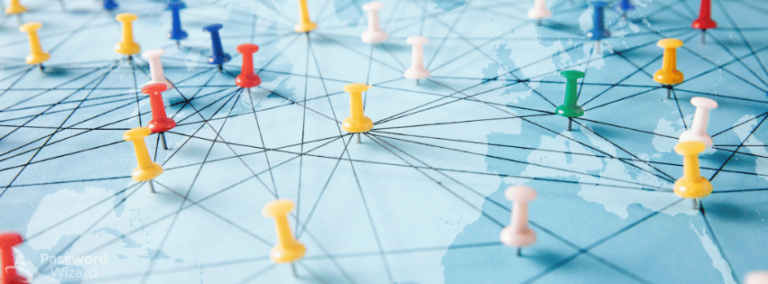In today’s digital age, where online activities dominate our daily lives, ensuring the security of your data has never been more critical. From browsing social media to conducting financial transactions, every interaction on the internet leaves a digital footprint. Without proper safeguards, this data can be intercepted, exploited, or misused by malicious actors. This is where encrypted connections come into play. Encrypted connections protect your sensitive information as it travels across the internet, making it unreadable to unauthorized parties. In this article, we’ll explore the importance of encrypted connections, how they work, and practical steps you can take to secure your online activities—whether at home or while traveling.
What Are Encrypted Connections?
An encrypted connection refers to a secure communication channel that uses cryptographic techniques to encode data. Encryption transforms plain text into a scrambled format, known as ciphertext, which can only be deciphered with a specific key. This ensures that even if someone intercepts the data during transmission, they cannot understand or misuse it without the decryption key.
The most common example of an encrypted connection is HTTPS (Hypertext Transfer Protocol Secure), which secures web traffic between your browser and websites. Other protocols like SSL/TLS (Secure Sockets Layer/Transport Layer Security) also play a vital role in encrypting communications over the internet. These technologies form the backbone of modern cybersecurity, protecting everything from email correspondence to streaming services.
Why Are Encrypted Connections Important?
The primary purpose of encrypted connections is to safeguard your privacy and prevent unauthorized access to your data. Here are some key reasons why using encrypted connections is essential:
Protection Against Cyberattacks : Hackers often target unsecured connections to steal personal information such as passwords, credit card numbers, and private messages. Encrypted connections make it nearly impossible for attackers to decipher intercepted data.
Data Integrity : Encryption not only protects confidentiality but also ensures data integrity. It prevents tampering with the transmitted information, so you can trust that what you send or receive hasn’t been altered.
Compliance Requirements : Many industries, such as healthcare and finance, have strict regulations requiring businesses to use encrypted connections when handling sensitive customer data. Failing to comply can result in hefty fines and reputational damage.
Trust and Credibility : Websites that use HTTPS are seen as more trustworthy by users. Search engines like Google prioritize secure sites in their rankings, incentivizing businesses to adopt encryption.
Safe Browsing While Traveling : When traveling, especially in public Wi-Fi hotspots, your device becomes vulnerable to attacks. Encrypted connections provide an additional layer of protection, shielding your activity from prying eyes.
How Do Encrypted Connections Work?
To understand how encrypted connections function, let’s break down the process step-by-step:
Initiation : When you visit a website using HTTPS, your browser initiates a „handshake” with the server hosting the site. During this handshake, both parties agree on the encryption method and exchange keys.
Key Exchange : A unique session key is generated for each connection. This key is used to encrypt and decrypt all data exchanged during the session. Modern encryption algorithms, such as AES (Advanced Encryption Standard), ensure robust security.
Data Transmission : Once the connection is established, all data sent between your device and the server is encrypted. Even if intercepted, the data appears as gibberish without the decryption key.
Termination : After the session ends, the temporary session key is discarded, ensuring no residual vulnerabilities remain.
This seamless process happens behind the scenes, providing users with peace of mind while engaging in online activities.
Practical Steps to Enhance Encrypted Connections
While many websites and applications already use HTTPS, there are additional measures you can take to further strengthen your encrypted connections:
1. Use HTTPS Everywhere
Install browser extensions like „HTTPS Everywhere,” developed by the Electronic Frontier Foundation (EFF). This tool forces websites to use HTTPS whenever possible, reducing the risk of accidentally connecting through an insecure channel.
2. Enable Two-Factor Authentication (2FA)
Combining encryption with 2FA adds another layer of security. Even if someone manages to intercept your login credentials, they won’t be able to access your account without the second verification step.
3. Set Up Private VPNs
A Virtual Private Network (VPN) creates an encrypted tunnel between your device and the internet. By routing your traffic through a remote server, a VPN masks your IP address and encrypts all outgoing and incoming data. This is particularly useful when traveling or using public Wi-Fi networks.
When choosing a VPN provider, look for one that offers strong encryption standards (e.g., AES-256) and a no-logs policy. Avoid free VPNs, as they may compromise your privacy by selling your data to third parties.
4. Utilize SSH Tunnels
For advanced users, setting up an SSH (Secure Shell) tunnel provides a highly secure way to encrypt internet connections. An SSH tunnel forwards network traffic through an encrypted channel, protecting it from eavesdropping. This method is ideal for remote workers who need to access company resources securely.
5. Keep Software Updated
Regularly update your operating system, browsers, and apps to patch any vulnerabilities that could weaken encrypted connections. Outdated software often lacks the latest security features, making it easier for attackers to exploit weaknesses.
6. Avoid Suspicious Links
Phishing scams often trick users into visiting fake websites that mimic legitimate ones. Always verify URLs before entering sensitive information and ensure they begin with „https://” rather than „http://”.
Special Considerations for Travelers
Traveling introduces unique challenges to maintaining encrypted connections. Public Wi-Fi networks in airports, hotels, and cafes are convenient but notoriously insecure. Here’s how travelers can stay safe:
Use a Reliable VPN : As mentioned earlier, a VPN is indispensable for securing your connection on public Wi-Fi. Choose a reputable provider and connect to a server located in your home country to avoid geo-restrictions.
Disable Automatic Connections : Turn off automatic Wi-Fi and Bluetooth connections on your devices to prevent them from joining unknown networks without your consent.
Leverage Mobile Data : If available, use mobile data instead of public Wi-Fi for sensitive tasks like banking or shopping. Mobile networks are generally more secure than open Wi-Fi hotspots.
Encrypt Local Files : Before traveling, encrypt important files on your device using tools like BitLocker (Windows) or FileVault (Mac). This ensures that even if your device is lost or stolen, your data remains protected.
Backup Regularly : Store copies of your encrypted files in a secure cloud service or external drive. This minimizes the impact of potential data loss.
Common Misconceptions About Encrypted Connections
Despite their widespread adoption, several myths about encrypted connections persist. Let’s debunk a few:
Myth #1: Encryption Slows Down Performance While encryption does require processing power, modern hardware and optimized algorithms minimize performance impacts. The slight delay is negligible compared to the benefits of enhanced security.
Myth #2: Only Businesses Need Encryption Individuals also benefit from encryption, as cybercriminals target anyone with valuable data—not just corporations.
Myth #3: HTTPS Alone Is Enough While HTTPS is crucial, combining it with other security measures like firewalls, antivirus software, and regular updates provides comprehensive protection.
Conclusion
In conclusion, encrypted connections are indispensable for safeguarding your online activities in an increasingly interconnected world. Whether you’re browsing the web, sending emails, or managing finances, encryption ensures that your data remains confidential and secure. By adopting best practices such as using HTTPS, setting up private VPNs, and leveraging SSH tunnels, you can significantly reduce the risk of cyber threats.
For travelers, the stakes are even higher due to the prevalence of unsecured public Wi-Fi networks. Taking proactive steps to encrypt your internet connections while on the go is not just advisable—it’s essential. Remember, investing time and effort into securing your digital presence today will save you from potential headaches tomorrow.
Stay vigilant, embrace encrypted connections, and enjoy a safer online experience!
Read more:
- Free Online Password Generator Tool – Generate Strong Passwords
- Unique Passwords: The Key to Online Security
- Avoid Predictable Information in Passwords
- Two-Factor Authentication 2FA
- Secure Storage
- Browser Safety Tips: Protect Your Passwords Online
- Encrypted Connections: Safeguarding Your Online Activities
- Regular Updates: The Key to a Secure Digital Life
- Device Security : Protect devices with firewalls, antivirus software, and physical locks
- File Integrity
- Phishing Awareness
- Developer Best Practices
- Business Security



